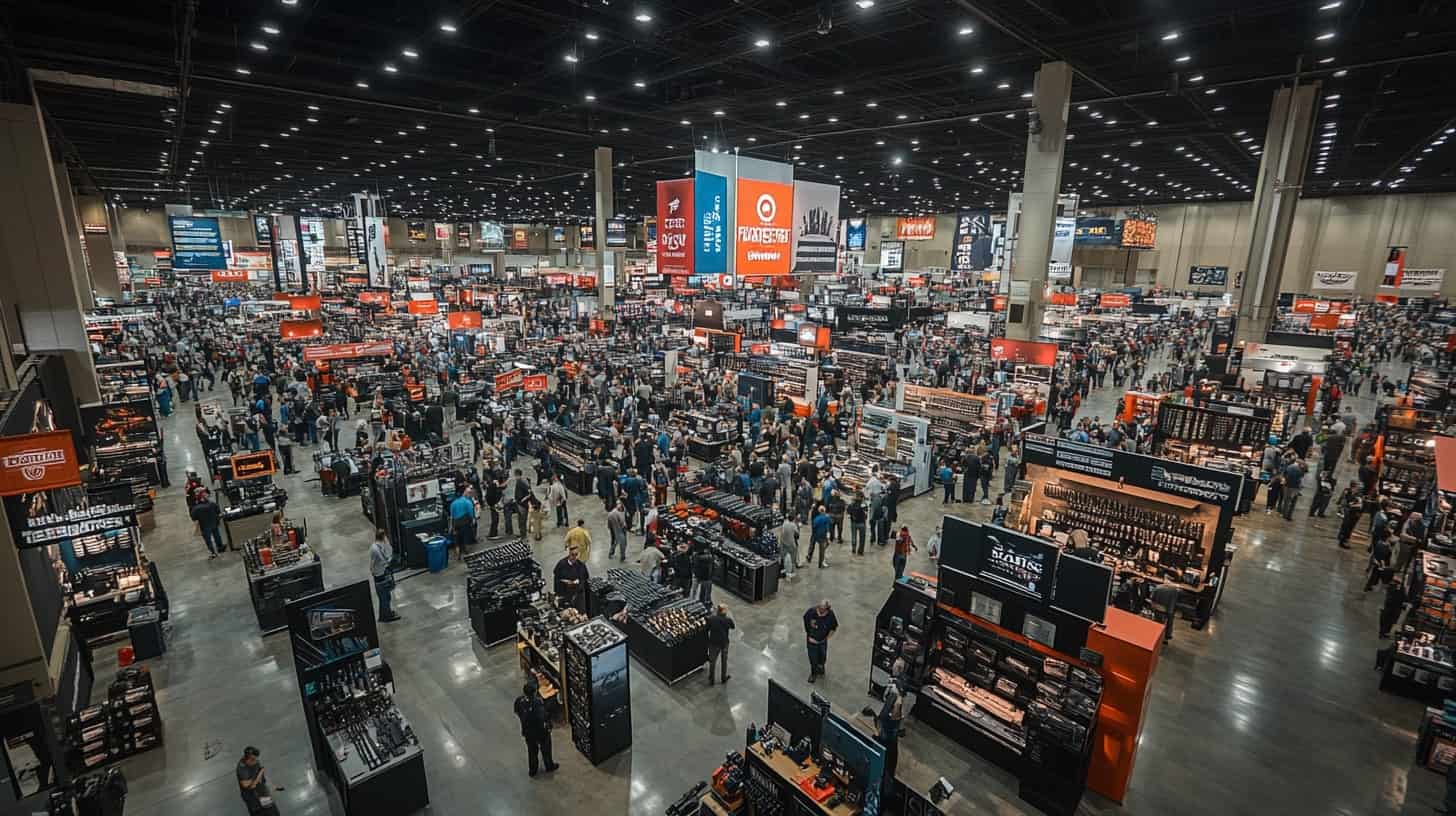Gun shows are an exciting hub for firearm enthusiasts, collectors, and first-time buyers alike. These events offer a unique opportunity to explore a vast selection of firearms, ammunition, accessories, and tactical gear all under one roof. For first-time attendees, the experience can be overwhelming, but with proper preparation and knowledge, you can walk away with great finds and a deeper understanding of the firearms community. This article will guide you through everything you need to know about attending your first gun show, from preparation to negotiation and purchasing strategies.
Understanding What to Expect at a Gun Show
A gun show is not just a marketplace; it’s a gathering of firearm enthusiasts, dealers, private sellers, and collectors. These events range from small local exhibitions to massive trade shows with hundreds of vendors. While the primary focus is on firearms, you’ll also find a variety of related items, including hunting gear, tactical equipment, survival gear, and historical collectibles.
One of the key advantages of attending a gun show is the ability to see and handle firearms before making a purchase. Unlike online shopping, where you rely on pictures and descriptions, gun shows provide a hands-on experience. You can examine the weight, ergonomics, and features of different firearms while discussing details with knowledgeable vendors.
However, navigating a gun show requires more than just curiosity. It’s important to have a plan in place to make your visit efficient and successful.
Preparation: What to Do Before You Go
Before heading to a gun show, research is essential. Start by checking the official website or social media pages of the event to gather details such as location, entry fees, vendor lists, and show regulations. Some events require attendees to follow specific rules regarding firearms and ammunition, such as mandatory firearm safety checks upon entry.
Additionally, familiarize yourself with firearm prices. Checking online marketplaces like GunBroker, Armslist, and manufacturer websites will give you an idea of standard pricing for the firearms or accessories you’re interested in. This knowledge will help you determine if a vendor is offering a good deal or overpricing an item.
Bringing cash is another important step. While many vendors accept credit cards, cash transactions are often preferred and can sometimes help in negotiating a better price. Be sure to carry enough cash in various denominations but keep it secure in a discreet money belt or wallet.
Navigating the Show and Finding the Best Deals
Upon arrival, take a few minutes to walk through the venue and get an overview of the layout. Vendors often have different pricing on similar items, so comparing prices before making a purchase can save you money.
When evaluating firearms, always inspect them carefully. Check for signs of wear, rust, or damage, particularly on used firearms. For new guns, compare models and brands to find the best fit for your needs. Don’t hesitate to ask vendors questions about the firearm’s history, maintenance, and performance.
Negotiation is a common practice at gun shows, and sellers often expect some level of haggling. However, approach negotiations respectfully. Offering a reasonable counteroffer rather than lowballing will increase your chances of securing a good deal. If a vendor refuses to budge on price, consider bundling additional accessories or ammunition to make the purchase more worthwhile.
Timing is also a factor in getting better deals. Vendors may be more willing to lower prices at the end of the day or on the last day of the show when they’re looking to offload inventory. However, if you see a rare or highly desirable item early in the show, it’s better to purchase it right away rather than risk it being sold later.
Legal Considerations and Responsible Buying
Before purchasing a firearm at a gun show, ensure you understand local and federal firearm laws. Licensed dealers at the show will still require background checks, just as they would at a retail store. However, private sellers may not be subject to the same regulations, depending on your state’s laws.
If you plan to purchase a firearm from a private seller, ask for a bill of sale and keep records of the transaction for your records. Be cautious when dealing with private sales, and verify the firearm’s legality before completing a purchase.
In addition to firearms, gun shows are excellent places to find ammunition at discounted rates. However, always inspect the packaging and labels to ensure you’re purchasing high-quality and properly stored ammunition.
Maximizing Your Experience and Networking
A gun show is not just a shopping event—it’s a place to learn and connect with others in the firearms community. Take the time to engage with vendors, listen to experts, and participate in any available demonstrations or discussions.
Networking with dealers and other attendees can provide long-term benefits. Vendors who recognize repeat customers may offer exclusive deals or insider information on upcoming sales. Additionally, connecting with fellow enthusiasts can lead to valuable recommendations and insights on firearms and accessories.
Conclusion
Attending a gun show for the first time is an exciting experience, but going in prepared will ensure you make the most of the opportunity. By researching beforehand, setting a budget, comparing prices, and negotiating respectfully, you can walk away with quality purchases at great prices. Beyond the deals, gun shows provide an excellent opportunity to learn, connect, and immerse yourself in the world of firearms.
With the right approach, your first gun show can be a rewarding and enjoyable experience that leads to great finds and long-lasting connections. So, step in with confidence and make the most of the adventure!
